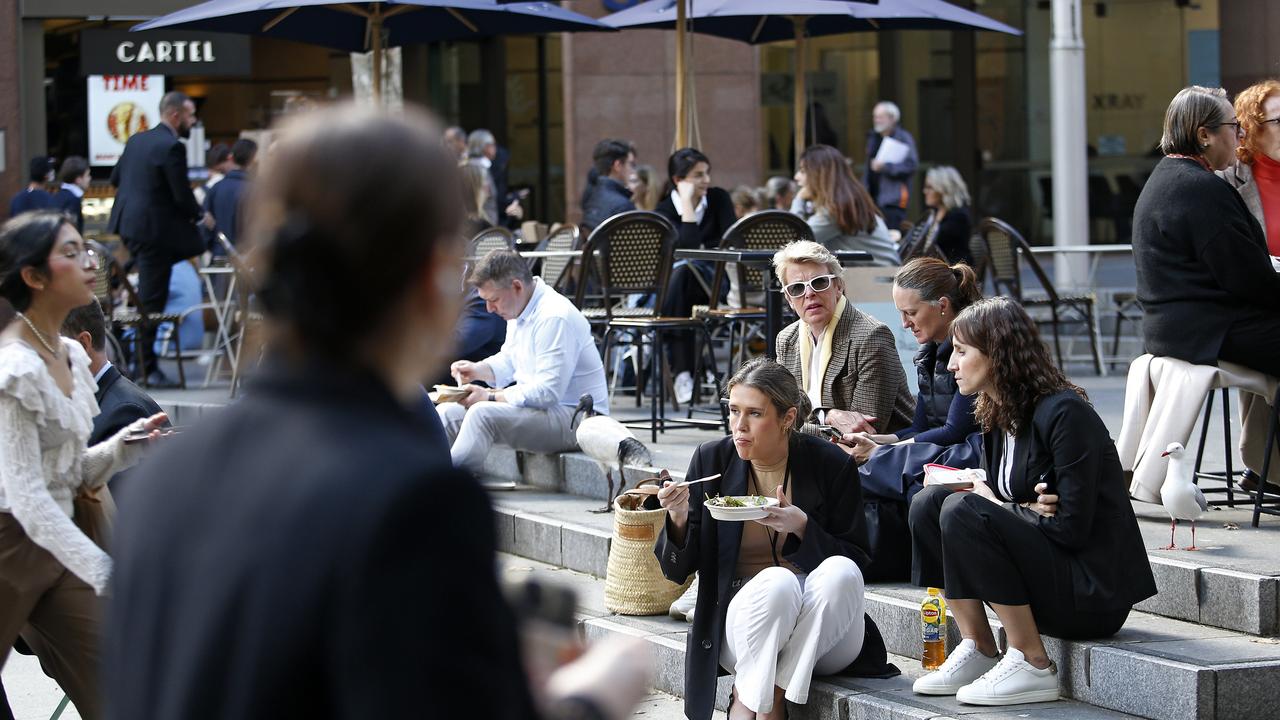Rental prices fall as coronavirus causes vacancy rates to soar
Australians should be negotiating cheaper rent as vacancy rates surge to record levels since the coronavirus. But some say it’s not that simple.

Australians are being urged to negotiate cheaper rental prices as the coronavirus pandemic causes vacancy rates to soar.
Nearly three million have already been spurred by government and banking support to ask for either a rent reduction or deferral on their mortgages, according to new figures from comparison site Finder, accounting for 15 per cent of the country.
A further 1.7 million intend to seek cheaper rent from their landlord as the health crisis grinds the economy to a halt and the unemployment rate heads towards 10 per cent.
The government lockdown and shutting of international borders has led to investors abandoning Airbnb properties, causing the vacancy rate in Sydney’s CBD to surge to 13.8 per cent in March, according to new data from SQM Research.
RELATED: 643,000 Aussies defer home loans during crisis
RELATED: Extraordinary warning for amateur investors
Brisbane and Melbourne’s central suburbs are emptying too, with the number of established rental properties currently unoccupied rising to 11.3 and 7.6 per cent respectively.
But despite the overwhelming evidence renters are deserving of a reduction during a costly pandemic, some are too frightened to broach the subject fearing their prospects for future housing will be dented.
We will be releasing the residential rental vacancy rates update, later this morning. As a snippet, see below the rental vacancy rate for the Sydney CBD. It is now 13.8%, which is a record high on our series.
— Louis Christopher (@LouiChristopher) May 11, 2020
A mass exodus has occured. pic.twitter.com/gdjizrfD4T
Peta Toohey is struggling to make ends meet renting in the inner western Sydney suburb Newtown after the sociology student was cut to two shifts a week and her boyfriend was let go from his hospitality job.
The 23-year-old knows how hard it is to settle into a Sydney rental, where prices climb regularly and competition is fierce.
“I’ve always prided myself on having a really good rental history and while I know a lot of people are receiving rent reductions, a lot of people I know haven’t been approved,” she told news.com.au.
“I don’t know of anyone who has actually received a rental reduction, so it has made me less inclined to seek it out.”
The NSW Government introduced a six-month moratorium on residential tenancy evictions to ease pressure during the coronavirus shutdown, but Ms Toohey fears speaking out in an industry that infamously serves the landlord over the renter.
“If you contest real estate agents too much then you become that tenant they don’t want to keep on once the lease is up,” she said.
“I find that if you’re too demanding on real estate agents then they tend to pull their claws out.”

SQM’s managing director Louis Christopher said rental prices had already fallen as a result of deteriorating market conditions and tenants should be emboldened to seek a reduction, depending on the location.
“Suburban localities are being hit and rents are falling, so if you don’t ask, you don’t receive,” he told news.com.au.
“For those tenants whose lease has now come up after 12 months or are on a month-by-month agreement, they are in the box seat.
“They can ask for a rental reduction and if they don’t get it then they can have a look at what’s in the market.”
The crippled tourism market combined with rising unemployment has created a “massive oversupply issue,” Mr Christopher said.
“There’s been a large number of Airbnb properties that are now trying their hand at the longer term leasing market because there’s no international tourists coming through, let alone domestic tourists.”
This has already led to falling rental prices, which Mr Christopher expects will further weaken the housing market.
“Obviously this is a very negative situation for property investors, not just existing property investors but would-be property investors would be looking at the rental market right now and have some serious concerns,” he said.
“If they buy an investment property, will they actually find a tenant? I suspect we’ll see less interest in the property market the longer the rental glut persists.
“How long it will persist is a matter for how long the international border stays closed.”
FAILURE OF THE SYSTEM
Ms Toohey’s boyfriend was part of the first batch of laid-off Aussies to submit an application for income support at the beginning of the pandemic-induced shutdown but is still yet to receive a payment.
The pair feel let down by an unavailing response that was promised to offer immediate support to the suddenly unemployed struggling to pay for housing.
“Our welfare system prior to this (coronavirus) was based on the idea you need to go out and get a job and if you don’t then we’re going to make it really insidiously low for you to live on these payments as a form of punishment or incentive,” she said.
“And now that we don’t have these jobs, it’s great that they’ve increased it but it’s come at a really slow rate.
“The scaring effects of that are awful; all your savings go out the window and it’s on the assumption that you even had savings.
“It feels like a failure of the system.”
Have more to add? Get in touch via email at james.hall1@news.com.au or through Twitter @James_P_Hall




